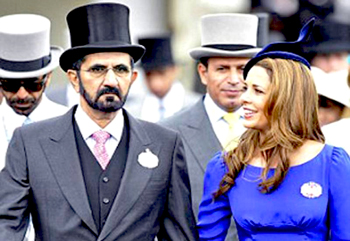Abu Dhabi, Apr 5: The Vice President of United Arab Emirates (UAE) and Ruler of Dubai Sheikh Mohammed bin Rashid Al Maktoum is planning is build a personal six-story super car park for his fleet of 114 luxury cars in London.
According to a report by MailOnline, a five-star accommodation will also be built which will include offices, bathrooms and three triple-bedroom flats to be used by the chauffeurs and staff of the super car park.
 The super car park and the five star accommodation will be built next to Battersea heliport by the River Thames.
The super car park and the five star accommodation will be built next to Battersea heliport by the River Thames.
Once built the car park will allow the Sheikh, his associates along with his 23 children to arrive in the capital city of United Kingdom by helicopter and jump straight into whichever luxury car they like.
Al Maktoum also has business interests including the Godolphin horseracing stables and the Jumeirah luxury hotel group.
The construction cost of the super car park is estimated to be around £20million with construction sources saying that the cost will be alot more if the emir plans to cover it in marble.
The Smech Management Company submitted the plans for the land and planning application was approved by councillors at Wandsworth Borough Council.
The company is also behind the Sheikh's proposed 16-bedroom mansion in the Scottish Highlands.
Dubai is a Gulf Arab emirate that attracts tourists with the promise of an opulent lifestyle. Dubai built the world's tallest building, put a ski slope inside a shopping mall, and gave its cops a Lamborghini for a police car.
UAE officials are also planning to build the world's first temperate-controlled city in Dubai in a bid to become a year-round tourism destination despite soaring temperatures in summer that can reach nearly 50 C.
The city will be built on 48 million square feet which will contain the largest shopping mall on the planet, complete with climate-controlled streets, the world's largest indoor theme park and 100 hotels and apartments.




Comments
Add new comment